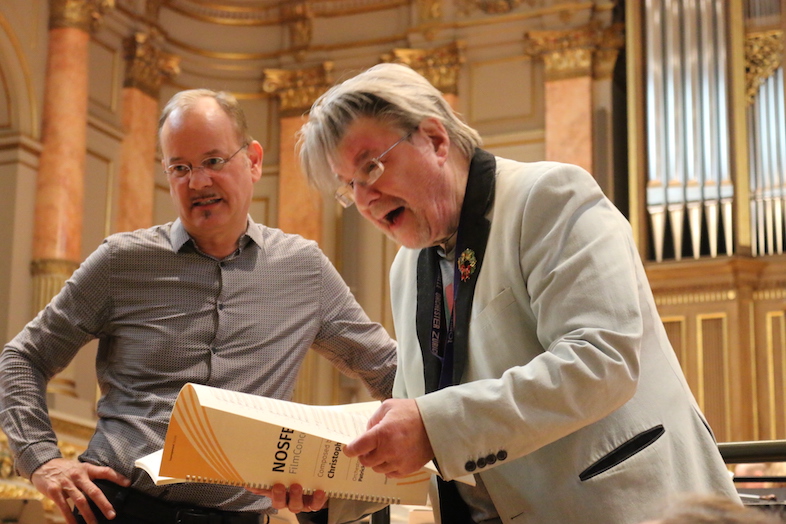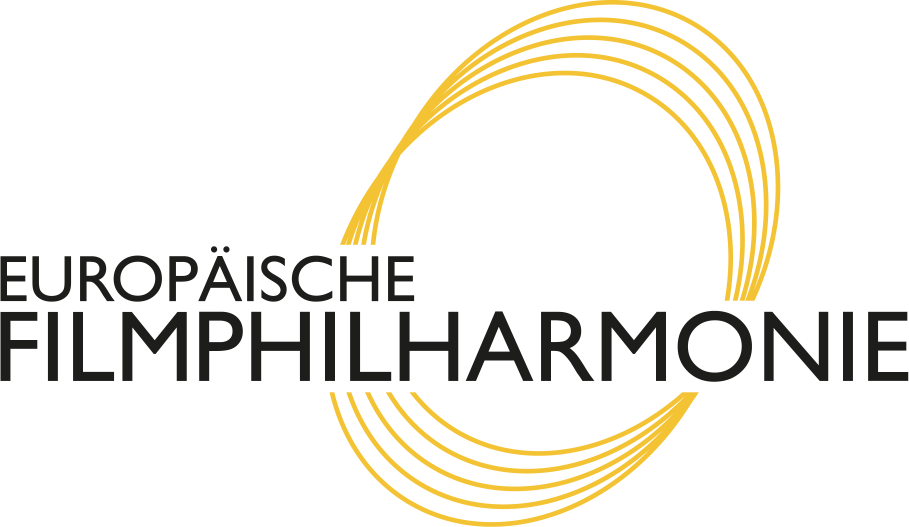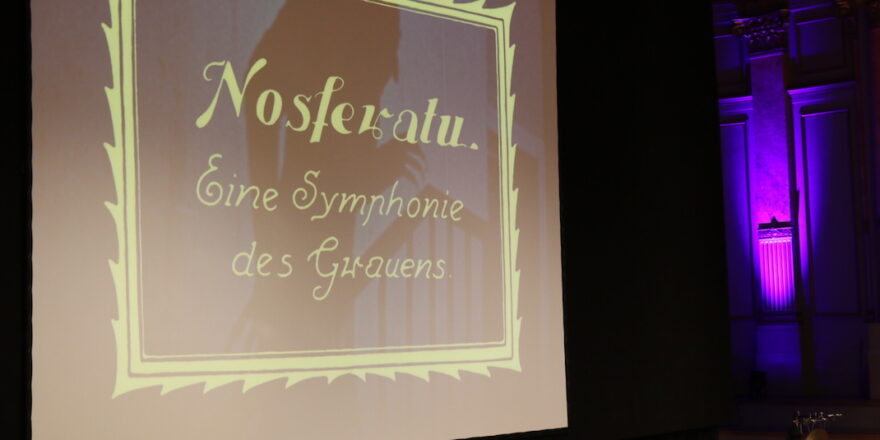Since it premiered in Berlin in March 1922, Murnau’s NOSFERATU – A SYMPHONY OF HORROR remains the most influential vampire film of all time. Adapting Bram Stoker’s DRACULA (1897), Murnau and scriptwriter Henrik Galeen changed all characters‘ names and locations to avoid paying royalties: Dracula became Orlock, Mina became Ellen, London became Wisborg, etc. For the iconic vampire embodied by Max Schreck, Albin Grau created a groundbreaking and seminal look, far from the seductive prince of darkness and closer to a coursed animal with rat-like features. Murnau pulls off both the thrilling narrative and the poetry of esoteric undertones, while Fritz Arno Wagner’s camera captures the threshold between the natural world and the occult with striking power. As its title suggests, NOSFERATU is first and foremost A SYMPHONY OF HORROR – one that has fascinated countless filmmakers (Herzog, Coppola, Burton…) as well as composers. The last and most eager victim to fall under NOSFERATU’s spell is the legendary Christopher Young.

Composing a new score for NOSFERATU has been, in Christopher Young’s own words, both «a frightening thing» and «a dream come true». His SYMPHONY OF HORROR is scored for a large orchestra, and though Young’s dense style puts to test every instrumental section, a prominent role is given to a vast percussion and to the pipe organ.
On one hand, the music is rich in melody (beginning with a superb opening theme for strings and organ) while, on the other, the evil which unfolds on screen is accompanied by unrestrained pandemonium, often defined by ferocious rhythmic patterns. Young’s wild creativity extends to his use of several 20th century classical techniques, from aleatoric passages for brasses which resemble mad sessions of Morse code, to the sound masses (or “sonic vomit”, in Young’s own vernacular) for the visual display of the effects of vampirism.
The composer’s impeccable instinct for storytelling informs a number of counter-intuitive choices, such as the decision to envelope the listener in a dark and oppressive atmosphere from the very first bars and until the monumental chord which ends the work. In so doing, Young seems to suggest that Orlock’s malicious influence lingers on the unaware people of Wisborg right from the beginning, and that his power does not vanish with the vampire’s disappearance.
In the course of this work of uninhibited fantasy, Young proves that his musical spell can truly transport the listener to that «invisible world» of darkness and mystery. In so doing, he manages to reaffirm the newness and purity of Murnau’s immortal masterpiece.
CHRISTOPHER YOUNG: A PORTRAIT
by Andrea Bruno
Born in Red Bank (New Jersey) in 1957, Christopher Young began his musical journey as a jazz drummer, shifting his focus to film music after hearing the record The Fantasy Film World of Bernard Herrmann. In 1980 he arrived in Los Angeles to complete his musical education at UCLA, where he studied under David Raksin. Young cut his teeth scoring low-budget horrors and a variety of independent genre films, getting to work for Roger Corman among others. While mastering his orchestral voice, he showed a natural talent for melody, a deep knowledge and fluency in the many idioms of Hollywood Symphonism and an obsession for avant-garde musical techniques. He reached a first pinnacle with his groundbreaking scores for Clive Barker’s HELLRAISER and its sequel HELLBOUND: HELLRAISER II.
In 1992 Young scored JENNIFER 8, his first big studio movie, while both his score for the drama MURDER IN THE FIRST, one of the composer’s most well-regarded works, and the beginning of his eclectic collaboration with director Jon Amiel dates back to 1995. Determined to prove that his talents extended well beyond the horror and thriller genres, at the turn of the century Young got a chance to spread his wings by working with a number of important directors, such as Norman Jewison (THE HURRICANE), Curtis Hanson (WONDER BOYS; LUCKY YOU), Barry Levinson (BANDITS), Lasse Hallström (THE SHIPPING NEWS) and Sam Raimi (THE GIFT; SPIDER-MAN 3; DRAG ME TO HELL).
Thanks to his fervent teaching activity at the University of Southern California, Young has become a mentor for many generations of aspiring film composers, and he is idolized by a multitude of emerging directors. The last ten years have seen Young returning to his renowned roots: aside from few but noteworthy ventures in the fantasy and epic realms (THE MONKEY KING), Young’s recent works include the feature films PET SEMATARY, THE EMPTY MAN and THE OFFERING, as well as Mark Boal’s series ECHO 3 and episodes from anthology series 50 STATES OF FRIGHT and Guillermo del Toro’s CABINET OF CURIOSITIES.

Composition: Christopher Young (2023)
Orchestration: David Shephard, Kostas Christides, Patrick Russ, Erik Lundborg and Joohyun Park
**World Premiere in February 2023**
Frank Strobel, Conductor
Tonhalle-Orchester Zurich

